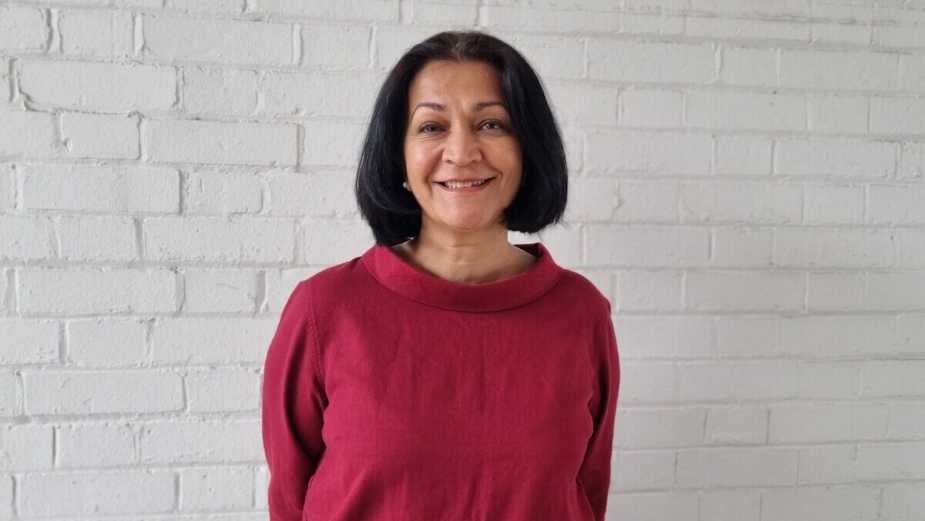
Planning for the Best: Disentangling Problems with Ayesha Walawalkar

Ayesha is chief strategy officer at Mullen Lowe Group London, where she leads planning teams across the integrated marketing group.
Ayesha’s whole career has been in planning, but she’s found moving around the world helps provide variety! She started life as a graduate trainee at AMV.BBDO in London, eventually moving to head up planning at BBDO APAC based in Hong Kong, where she built planning teams, helped drive new business, and worked on award winning campaigns for brands such as FedEx and Mars. She then spent several years in Singapore in Regional Director roles at BBH and JWT before returning to London as a global strategy director at Saatchi & Saatchi.
Ayesha joined Mullen Lowe in 2015 as a global strategy lead on Unilever brands, working on award winning campaigns such as Persil’s ‘Free the Kids’ and, more recently, the relaunch of Lifebuoy in the UK.
Ayesha became chief strategy officer for MLG in 2020, and her focus is on building teams of talented and highly effective planners into an engine of creative and business growth for the MullenLowe Group.
LBB> What do you think is the difference between a strategist and a planner? Is there one?
Ayesha> No, they are essentially the same thing. Usage is driven purely by preference. The dictionary definition of a strategist is ‘one who is skilled in planning the best ways to achieve success.’ So for some the term ‘Strategist’, implies a level of skill and expertise. But the contrarian in me prefers the simplicity and confidence of ‘Planner’.
LBB> And which description do you think suits the way you work best?
Ayesha> I’m a planner. Fundamentally, my job is to disentangle problems, pick away at them with different tools and observe them from different angles until I can see potential solutions that feel intuitive, fresh, and, above all simple. I see that as the craft of planning.
LBB> We’re used to hearing about the best creative advertising campaigns, but what’s your favourite historic campaign from a strategic perspective? One that you feel demonstrates great strategy?
Ayesha> One I worked on for a long time is the campaign ‘Dirt is Good’ for Persil. Sadly, I was not the planner who originated that thinking – if only! It does that classic judo-flip of subverting category norms with an insight that’s strikingly fresh and relevant. That tension between category expectation and human truth sparks creative brilliance again and again, and it is the gold standard of what we, as planners, are trying to do.
A campaign I’d love to have been involved in is Snickers’ ‘You’re not you when you’re hungry’. That idea is anchored in a beautifully simple insight and executed with genius. We massively underestimate how hard it is to get to a BFO insight like that: one from which you can generate endless brilliant work.
LBB> When you’re turning a business brief into something that can inform an inspiring creative campaign, what do you find the most useful resource to draw on?
Ayesha> When you start with a business brief, your first job is to translate the business problem into a behavioural and communications challenge. From there, the most interesting insight to feed into creative teams can often be found in the gap between what people say and what they actually do. There’s often a tension there that is interesting and that can spark creative thought.
The resource needed is simply a combination of viewpoints, eg. qualitative research, versus observational or quantitative work vs social listening. Finding the gaps and tensions between is a way to find that insight.
LBB> What part of your job/the strategic process do you enjoy the most?
Ayesha> I love the connection between the strategic and creative processes. For me its the most stretching and rewarding part of being a planner. I would find it very frustrating to deliver a strategy and not be able to see, shape or enjoy the output from it. It would be like mixing a cake and walking away before it was baked.
LBB> What strategic maxims, frameworks or principles do you find yourself going back to over and over again? Why are they so useful?
Ayesha> I like the ruthless simplicity of an exercise like ‘Get… To… By’. Although a lot of work gets done in the middle, I like to start and end the strategic process with GTB as a kick off and check back. I rewrite it as many times as necessary to get to something that feels fresh and insightful.
LBB> What sort of creatives do you like to work with? As a strategist, what do you want them to do with the information you give them?
Ayesha> I love working with teams who take your thinking and bounce off it in new, unexpected directions. They take ideas you have lived with for a while somewhere much more exciting and fresh. The best creative partners also challenge you just enough. They push you to think a bit harder, and then they work with you to achieve something bigger than you could by yourself.
LBB> There’s a negative stereotype about strategy being used to validate creative ideas, rather than as a resource to inform them and make sure they’re effective. How do you make sure the agency gets this the right way round?
Ayesha> Both are important. Strategy matters at every stage and its important to evaluate and validate creative ideas, just as it’s essential to inspire and inform them. Planners stay involved throughout creative development: at best the process is a sparky, ongoing conversation between strategy and creativity.
LBB> What have you found to be the most important consideration in recruiting and nurturing strategic talent? And how has Covid changed the way you think about this?
Ayesha> Nowadays when recruiting we often set people a task or question to think about in advance, because what we’re interested in is less what they’ve done than how they think. Good planners have questioning minds and like to uncover connections between things. Finding people who have that excitement about discovery, regardless of category, channel or audience, is essential. We try to keep life interesting by offering our planners opportunities to work with different planning disciplines, markets and categories, so they keep learning and growing.
Pre pandemic, one of our major challenges as planners was to ringfence enough quiet time to think and to do the ‘Deep work’ part of our job. But after being stuck in our own homes for months on end, I came to realise the importance, the benefit – and the joy – of bouncing ideas off other people as we shape them. Getting that balance right is extremely important.
LBB> In recent years it seems like effectiveness awards have grown in prestige and agencies have paid more attention to them. How do you think this has impacted on how strategists work and the way they are perceived?
Ayshea> I have never worked at an agency at which effectiveness was not important or taken seriously. MullenLowe Group prides itself on the effectiveness of our work, and we invest significant time and effort in crafting effectiveness award entries. The number of new award schemes seems to have mushroomed lately, and we are now being more considered about what we do and don't enter. We need to balance ensuring our effectiveness is recognised with giving everyone the time and space to create great work in the first place.
LBB> Do you have any frustrations with planning/strategy as a discipline?
Ayesha> Planners are expected to be on top of the latest thinking on everything from effectiveness to neuroscience to the metaverse. The rate at which that new thinking is emerging is exponential and balancing time for quiet work whilst also keeping abreast of everything shiny and new is a major challenge. Also, good planners tend to get pulled into a LOT of meetings. Again, the same frustration: how to carve out time and space to think.
LBB> What advice would you give to anyone considering a career as a strategist/planner?
Ayesha> It's a wonderful career once you get in, but I recognise how incredibly difficult it is to get into this industry, and particularly this role. Keep going.
If and when you are applying for planning roles, think hard about the sorts of communication that interest you and spend time working out how they got there. Read around your subject, and never be afraid to question what you read. Find ways of demonstrating your thinking because, ultimately, planning directors are interested in people who think in smart, strategic and original ways.













